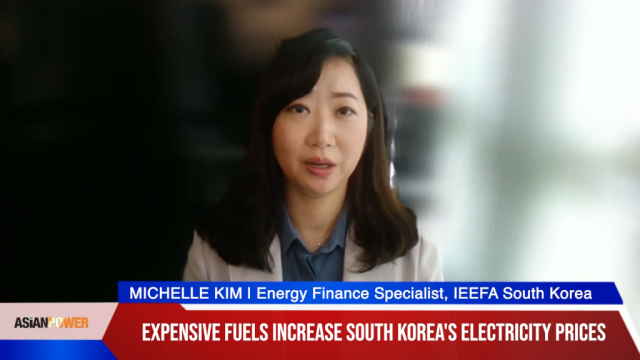
Renewables transition in Philippines urged for cheaper electricity
Its reliance on imported thermal coal has caused price surges for consumers.
The Philippines could see cheaper electricity prices and a more competitive and reliable power sector post-pandemic if it swapped its reliance on coal power for renewables and structured a transition plan using auctions, according to a report from the Institute for Energy Economics and Financial Analysis (IEEFA).
The report found that the focus on baseload coal and reliance on imported fuel have contributed to price surges for consumers that can only be tempered if force majeure is invoked. Without force majeure, per kilowatt-hour rates would rise 15% in Luzon and 5% in the Visayas. Prior to COVID-19, the Philippines already had one of the most expensive electricity prices in Asia.
IEEFA’s energy finance analyst Sara Jane Ahmed explained that, although Meralco attributed the recent electricity instability to a spike in residential power consumption due to rising temperatures, it may have instead been due to an over-reliance on intractable fossil fuel plants that are not flexible enough to meet consumer needs.
Ahmed noted that the Luzon grid was under yellow alert in early June, meaning power supply is limited, and no less than 2,243MW of coal capacity, 150MW of oil and 115MW of geothermal contributed to this.
In particular, the country is currently locked into large coal-power contracts with producers, made more expensive by the need to import coal. This has led to inflexibility in generation and supply, price instability and high prices as well as negative effects on the trade balance.
“Whilst jumping to the conclusion that there needs to be more baseload power seems logical on the surface, it’s actually the large baseload plants that are perpetuating this lack of power supply,” said Ahmed.
She added that the hybrid market has been shaped by regulatory incentives focused largely on building high generation capacity rather than improving the system, which has called for heavy capital investment in coal and other fossil fuel plants that require consumers to pay for generating capacity even when they are not being used.
“Moving to ever cheaper wind and solar technologies that are reshaping global energy markets would mean much more reliable and competitively priced power.”
Ahmed suggested that the Department of Finance and the National Economic Development Authority can jointly build an economic recovery by strengthening the country’s electricity market with efficient new renewable energy technologies whilst reducing the cost of electricity.
IEEFA recommended reforms, including modular systems/grid upgrades, implementing the Green Energy Tariff, effectuating a moratorium on new inflexible power, expediting the launch of the Energy Virtual One-Stop Shops, and introducing competition to include standard force majeure provisions to ensure risk-sharing.
Image credits: Meralco























 Advertise
Advertise







